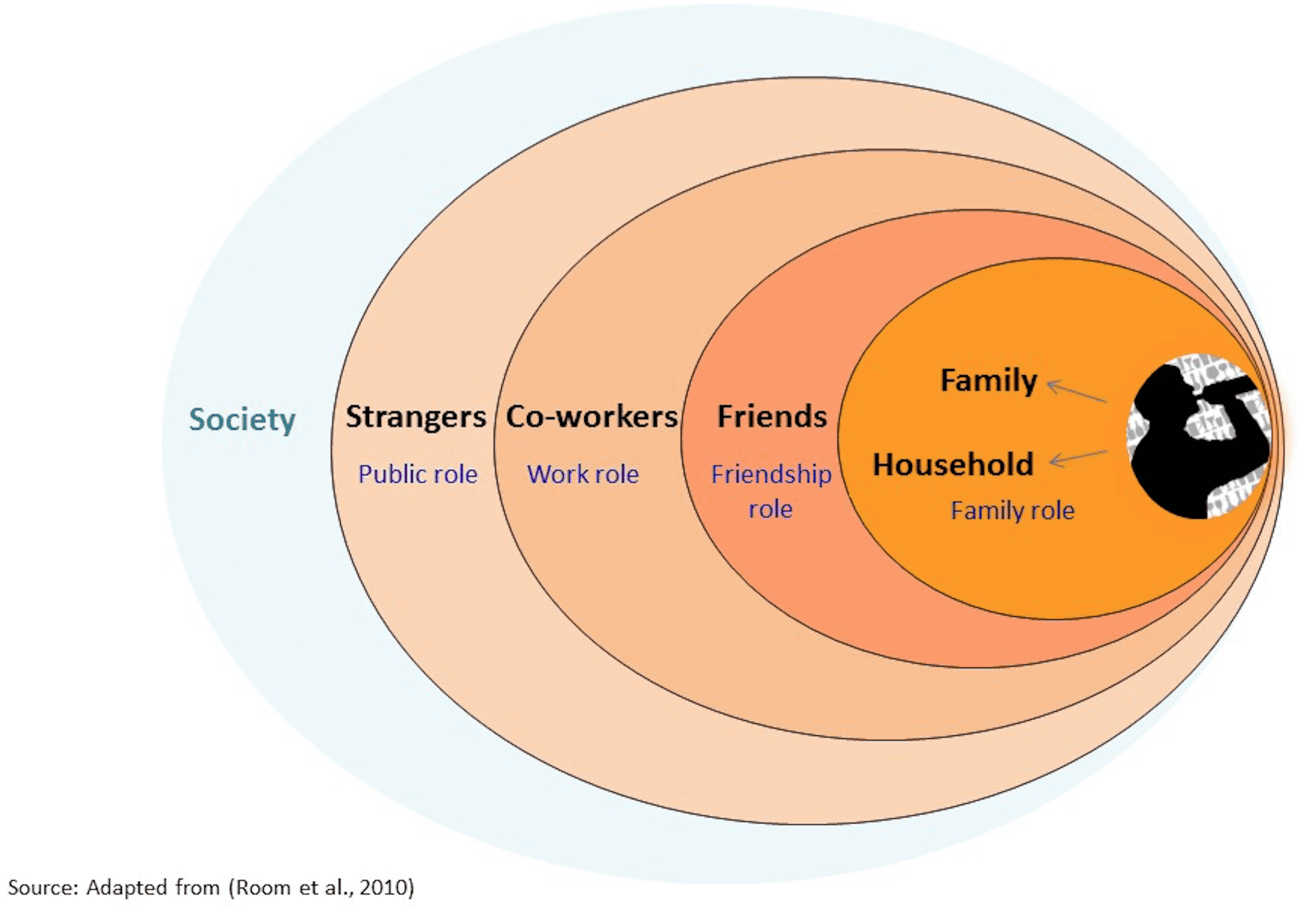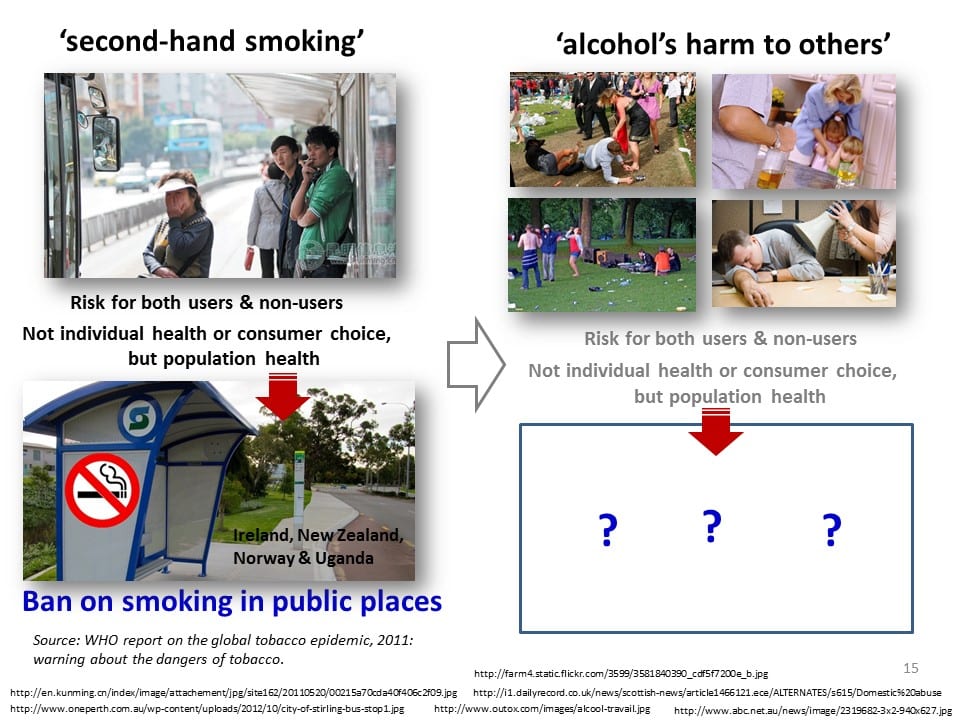While alcohol’s harm to the user’s health is still biggest killer, alcohol’s harm to others is on the rise of research and policy.
So far, we have known reasonably well about the health effects of alcohol to the users themselves. Recently, the WHO Global Status Report on Alcohol and Health 2014 showed that alcohol consumption can cause more than 200 diseases and injury conditions, including new data on relationships to infectious diseases such as tuberculosis, HIV/AIDS and pneumonia.
Concerning beyond the health effects of alcohol at individual level (traditionally defined as ‘social problem’), we have also known much about the troubles occurring to alcohol users due to their alcohol intake such as family problems, financial problems and problems with the police.
But then, how well do we know about alcohol-related harms affecting other people than users?
Has someone (who had been consuming alcohol) harmed you physically?”
Was your house, car or property damaged because of someone else’s alcohol use?”
Has someone (who has been consuming alcohol) been responsible for a traffic accident you were involved in?”
Have you felt unsafe in a public place because of someone’s alcohol intake?”
How often do you have to spend some time caring for a family member or friend because of their alcohol use?”
The above questions are examples to measure the adverse consequences from the perspective of the alcohol user’s victim(s) or those who are negatively affected by someone else’s alcohol consumption, called: “Alcohol’s Harm to Others”.

Social environment of alcohol user: by main types of relationships and social roles, source: Room et al., 2010
Some surveys have also paid attention to the social environment of the alcohol user in terms of social relationships to users, such as family, friends, co-workers and strangers, which provides us more knowledge about the dimensions of harm and the interactional relationships between the users and those who are affected.
Not just an individual choice
It is believed that evidence of alcohol’s harm to others can potentially be a strong argument for supporting alcohol policy development with the same analogy as research conclusions on the second-hand effects of smoking in supporting smoke-free policies.
Evidence on alcohol’s harm to others will shed light on the fact that alcohol consumption is not just an individual health or consumer choice, but a population health issue, and that therefore the government has good reason to intervene in order to protect innocent parties in society.

Good progress!
Recently, in September 2015, the KBS Thematic Meeting: Alcohol’s Harm to Others – Perceptions, Policies and Approaches was held in Helsinki, Finland. This meeting marked an import milestone for alcohol research in gathering and presenting research findings, by researchers in many countries all over the world, on negative consequences of alcohol consumption to others around the alcohol consumer. It seems to me, as a researcher, that many research projects are well on their ways and the ensuing, expected research findings will be a powerful tool to stimulate the alcohol policy debate in due time.
In the meantime, here are questions for you to think about alcohol’s harm to others:
Can you think of anyone among the people in your life ‐‐your family, friends, coworkers or others ‐‐ who you would consider to be a fairly heavy alcohol user, or someone who consumes a lot of sometimes?
And would you say that the use of alcohol by these people negatively affected you in some way?
